Introduction to Prebiotics
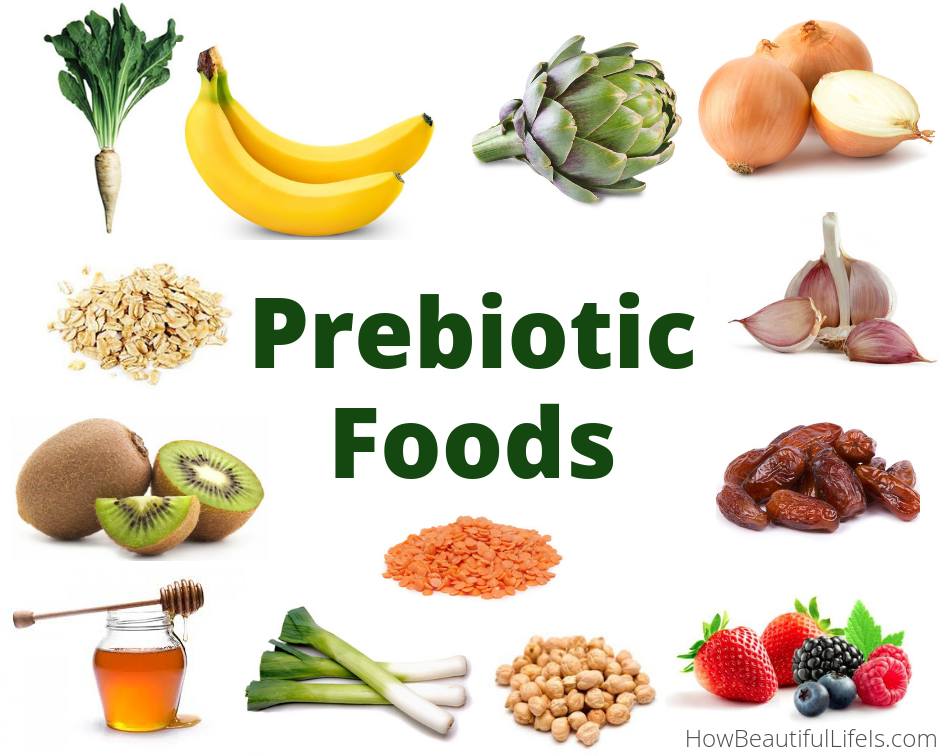
Do You Need Prebiotic Supplements. Prebiotics (non-digestible oligosaccharides) have been shown to be useful in preventing certain disease conditions as well as possibly promoting specific aspects of health. In the present review, the evidence from clinical trials for benefits from prebiotics to elderly populations is presented and discussed.
Specifically in respect of three common conditions found in the elderly. Both probiotics and prebiotics may be helpful in malnutrition, particularly in lactose intolerance and calcium absorption, and in constipation. Probiotics have been shown clearly to boost immunity in the elderly, but the clinical significance of this remains to be clarified. These results are encouraging, and further large scale studies seem justified to establish the place of probiotic and prebiotic supplements in elderly subjects.
What Are Prebiotics and What Do They Do?
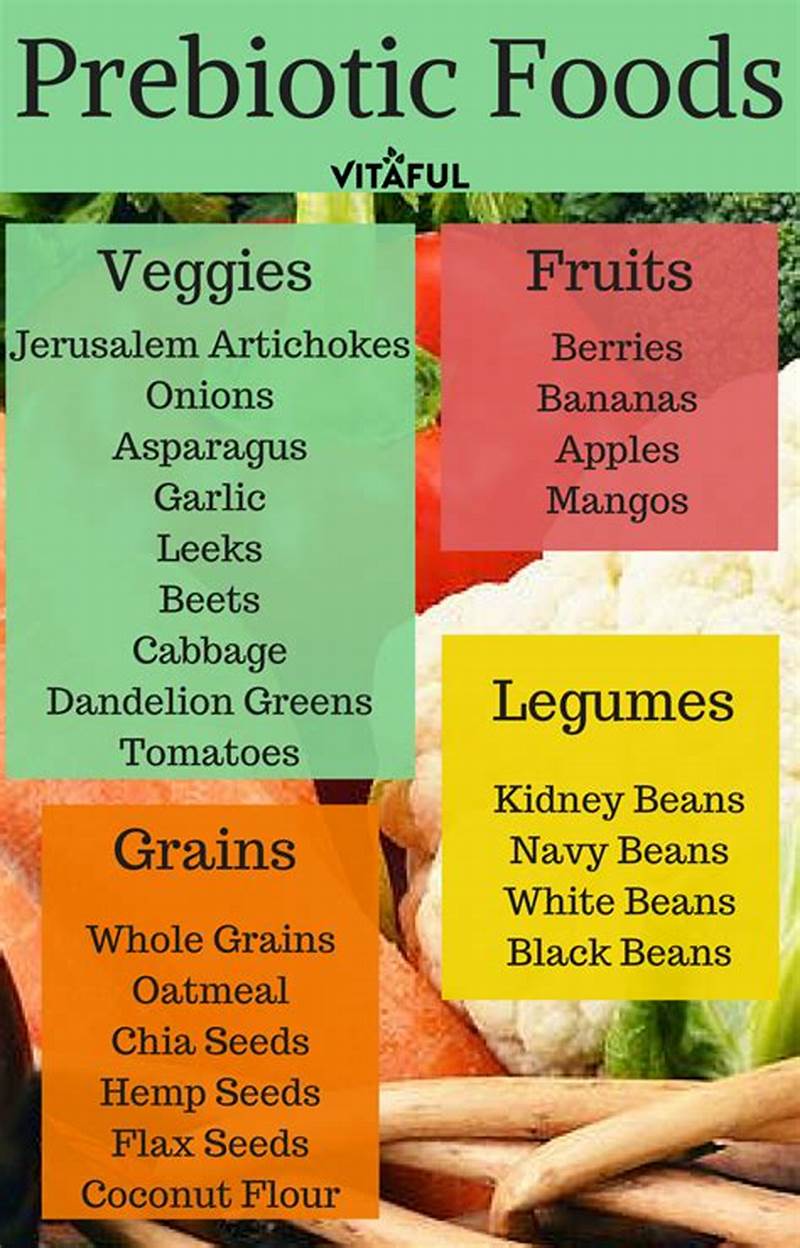
“Gut microbiota” refers to the trillions of microorganisms that live in your gastrointestinal (GI) tract and make up your gut microbiome. Here, your large intestine is home to the majority of these microorganisms. they carry out functions that are essential to overall health. And including nutrient metabolism and regulation of the immune system. In addition, your gut microbiota can even influence disease risk, including the risk of developing colon cancer, inflammatory bowel disease, and type 2 diabetes.
Diet and lifestyle factors significantly impact the diversity and types of microorganisms that live in the GI tract. Thus, prebiotics are essential to a healthy microbiome. So then, in simple terms, they’re nutrients that get broken down by gut bacteria. Subsequently, bacteria in the large intestine ferment prebiotics. Consequently, this releases byproducts called short-chain fatty acids. And these byproducts act as energy sources for the cells lining the colon, called colonocytes, and benefit health in many other ways.
The Role of Prebiotics
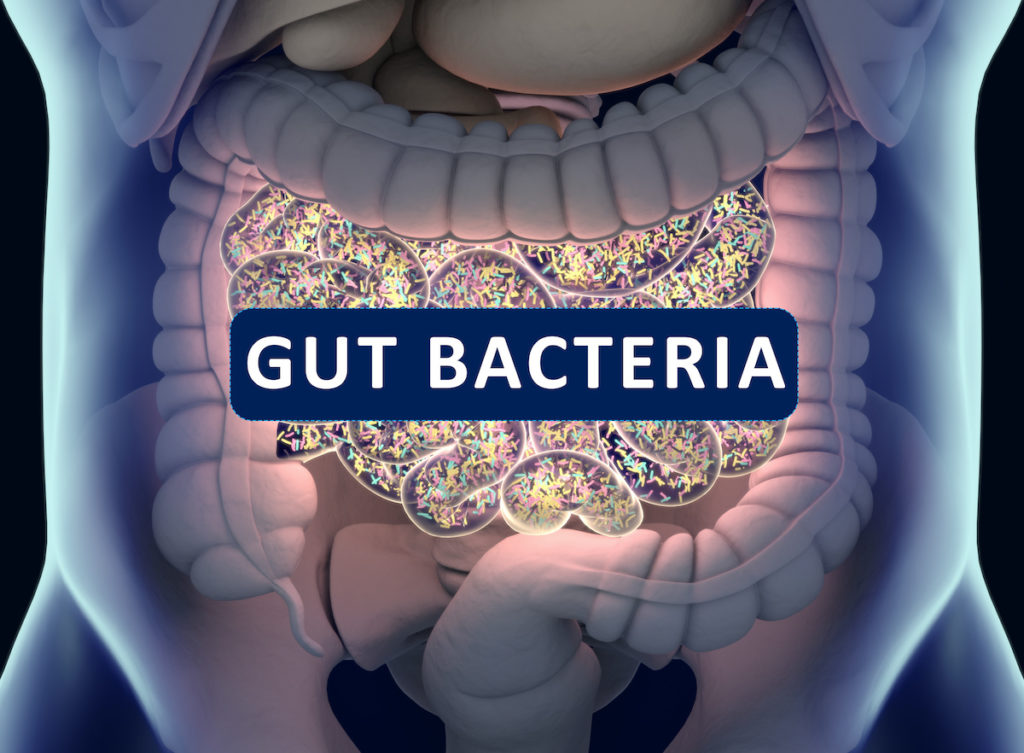
Prebiotics also influence the makeup and function of gut bacteria, promoting the growth of beneficial microbes. As an example, according to the International Scientific Association of Probiotics and Prebiotics, in order for a compound to be classified as a prebiotic, it should:
- resist stomach acid and digestive enzymes, plus should not be absorbed in the GI tract
- be able to be fermented by intestinal microbes
- stimulate the growth or activity of intestinal bacteria to improve health
Types of Prebiotics
There are many different types of prebiotics, including:
- fructans
- galacto-oligosaccharides
- starch- and glucose-derived oligosaccharides
- pectic oligosaccharide
- non-carbohydrate oligosaccharides
Most prebiotics are considered carbohydrates. However, some prebiotics are not classified as carbohydrates. Cocoa flavonols are an example of non-carbohydrate oligosaccharides. And although prebiotics are often confused with probiotics, they are not the same. Here, Probiotics are live microorganisms found in your gut, certain foods, and supplements that benefit health when taken in certain amounts.
On the other hand, prebiotics are nutrients that are dietary compounds that stimulate the growth and activity of certain microorganisms. As a result, some experts have referred to prebiotics as “microbiome fertilizers”
Where do you find prebiotics?
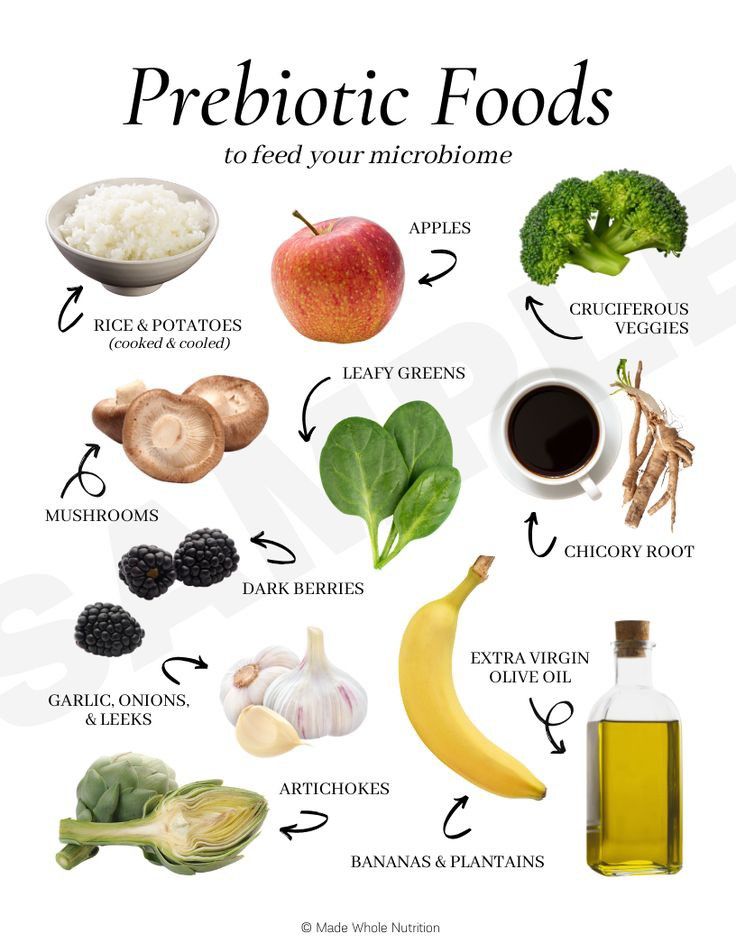
Prebiotics exist naturally in some foods, including:
- asparagus
- Jerusalem artichoke
- onions and leeks
- tomatoes
- garlic
- oats
- honey
- bananas
- wheat, barley, and rye
- peas
- beans
- chia seeds
- cow’s milk
- seaweed
- chicory
- dandelion greens
There aren’t a lot of foods that naturally contain prebiotics. Plus, many foods that are high in prebiotics, such as artichokes and beans, aren’t a regular part of many folks’ diets. Therefore, for this reason, synthetic prebiotics are added to some foods to improve their nutritional content and health value. Besides, prebiotics are also made into dietary supplements like powders and capsules.
Prebiotic supplements are used to treat specific health conditions and to improve overall gut health. For instance, some studies have shown that supplementing your diet with prebiotics may benefit people with gut-related conditions, high blood sugar, and more. However, compared with probiotics, research investigating the health effects of prebiotic supplements is much more limited
Health benefits of consuming prebiotics
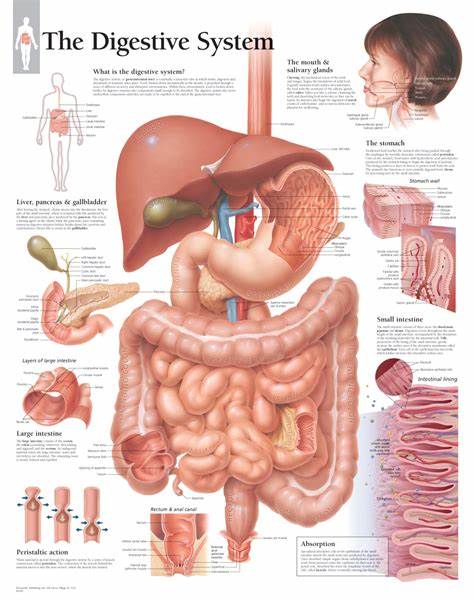
A diet rich in prebiotics promotes digestive system health by stimulating the growth of beneficial microorganisms. Furthermore, the fermentation of prebiotics produces short-chain fatty acids (SCFAs), including acetate, propionate, and butyrate. Hence, they play important roles in gut and metabolic health.
For example, SCFAs provide energy for colonocytes and are involved in mucus production, regulation of intestinal pH, and more. In addition to gut health, prebiotics influence immune function, blood sugar regulation, appetite, and energy expenditure. Generally, studies suggest that when taken in specific amounts, prebiotics may improve health in various ways.
May improve certain gut conditions
Because prebiotics stimulate the growth of beneficial bacteria and improve certain aspects of gut health. Here, they may benefit those who have gut-related health conditions like constipation. In this case, a 2020 review noted that treatment with inulin, a type of prebiotic, may benefit folks who have irritable bowel syndrome (IBS) with constipation. Also, it may improve the frequency and consistency of stool as well as intestinal transit time, or the time it takes food to move through the digestive tract.
However, a 2021 review found limited evidence that treatment with prebiotics — or prebiotics mixed with probiotics (synbiotics) — is helpful for treating IBS and that the quality of existing studies is low. So then, most experts, including the American College of Gastroenterology, don’t recommend prebiotics as a treatment for IBS.
However, another 2020 review that included 21 randomized controlled trials found that prebiotic treatments were effective for improving stool consistency, number of bowel movements, and bloating in people with chronic constipation. However, the researchers noted that it’s still unclear which prebiotic formulation is best for treating constipation.
Even though more research is needed to assess the effectiveness of prebiotic supplements on constipation and IBS, consuming a diet rich in foods high in prebiotics supports overall gut health and may help stimulate the growth of beneficial microorganisms.
May improve metabolic health
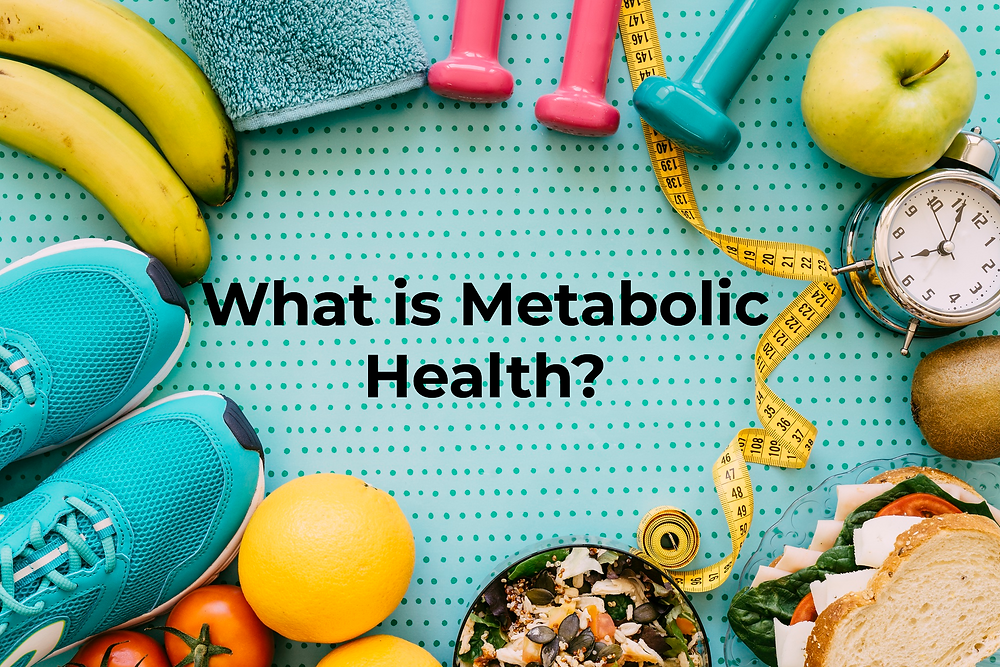
Eating a diet rich in prebiotics and taking prebiotic supplements may benefit certain aspects of metabolic health, including blood sugar, cholesterol, and triglyceride levels. But, a 2019 review of 33 studies found that treatment with the prebiotics called Inulin-type fructans (ITF) significantly reduced fasting blood sugar, a long-term blood sugar control marker called glycosylated hemoglobin (HbA1c), and fasting insulin levels.
The researchers found that these results were most significant in people with prediabetes and type 2 diabetes. And recommended that people with these conditions supplement with 10 grams of ITF per day for 6 weeks and longer to reap these potential benefits. Additionally, a 2021 review of 33 randomized controlled human trials found that ITF supplements significantly reduced levels of blood sugar, total cholesterol, and triglycerides in people with prediabetes and diabetes.
However, not all studies of prebiotics in these populations have found benefits. But a small 2021 randomized, double-blind crossover trial including 29 people with type 2 diabetes found that treatment with 16 grams of ITF daily for 6 weeks. In this case, had no effect on fasting or post-meal blood sugar levels compared with a control treatment. So then, while prebiotic supplements may help improve certain aspects of metabolic health in people with prediabetes and type 2 diabetes. However, more research is needed to confirm these potential benefits.
How to take prebiotic supplements
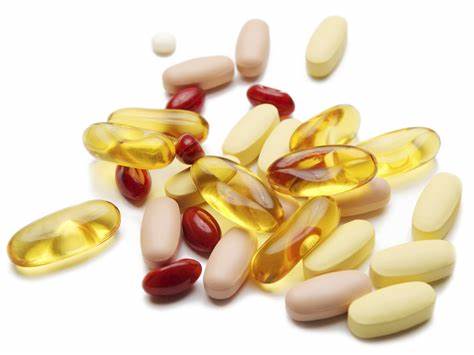
Experts suggest that if you want to take prebiotics, a daily dose of 2.5–10 grams is the minimum required for a meaningful effect on your health. However, the majority of prebiotic supplements on the market contain between 1.5–5 grams of prebiotics per serving. Generally, most prebiotic supplement manufacturers recommend taking a serving of prebiotics one or more times per day with a food or beverage. Prebiotic powders can be mixed with beverages like water or smoothies. But they can also be added to foods like yogurt.
Keep in mind that some prebiotics have special instructions for use. For example, psyllium husk, a fiber with prebiotic properties, should be taken with plenty of fluids, as it has a bulking effect on stools. It can lead to constipation and even intestinal or esophageal obstruction if it’s not taken with adequate fluids.
If you’re trying out a new prebiotic supplement, it’s important to read instructions and use the prebiotic as recommended to avoid potential side effects. Also, it’s suggested to start with a smaller dose of prebiotics and slowly increase the amount over time in order to minimize digestive side effects.
DONATE
Pensioner Fitness Awards
THE BUSINESS CONCEPT, BEST IN BUSINESS AWARDS
- “MOST INSPIRING SENIOR WELLNESS WEBSITE 2023“
THE GLOBAL HEALTH AND PHARMA, FITNESS AND NUTRITION AWARDS
2. “BEST SENIOR FITNESS AND NUTRITION SPECIALIST 2023“
THE MIDDLE EAST AND AFRICA BUSINESS AWARDS
3. “ MOST INCLUSIVE FITNESS PROVIDER 2023″
THE CORPORATE LIVE WIRE GLOBAL AWARDS 2023/2024
4. ” FITNESS ADVISORY PLATFORM OF THE YEAR“ 2023/2024
In Conclusion
Diet and lifestyle factors significantly impact the diversity and types of microorganisms that live in the GI tract. Thus, prebiotics are essential to a healthy microbiome. So then, in simple terms, they’re nutrients that get broken down by gut bacteria. Subsequently, bacteria in the large intestine ferment prebiotics. Consequently, this releases byproducts called short-chain fatty acids. And these byproducts act as energy sources for the cells lining the colon, called colonocytes, and benefit health in many other ways.
Important Note *
Remember that everyone is different, it is ultimately YOUR RESPONSIBILITY to find what your body responds to. So please do your due diligence before trying anything new, including getting Medical Advice to ensure your safety and peace of mind.
Connect with me and leave a comment